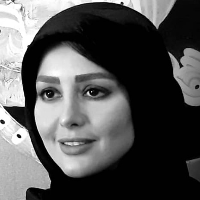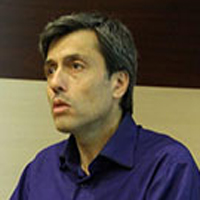Investigating sleep quality and cognitive performance with combined aerobic-cognitive training in patients with multiple sclerosis
Physical activity is one of the promising interventions with positive effects on the quality of sleep and cognitive function in multiple sclerosis (MS) patients. With the development of various physical programs, including physical-cognitive combined training,, it seems that these dual interventions may better affect neurodegenerative diseases, such as MS. In the same direction this study aimed to investigate the quality of sleep and psychomotor Vigilance of patients with MS by performing combined aerobic-cognitive training (Brythonic) and conventional aerobic training (Aerotonic).
30 patients (22 women and 8 men) with Relapsing-Remitting and Expanded Disability Status Scale (EDSS) less than four, an average age of 36.66±9.36 years, average height of 164.5±6.30 cm, average weight of 65.43 ± 9.80 kg and average body mass index 24.02 ± 3.02 kg/m2 were randomly divided into 3 groups of 10 people: Brythonic training, Aerotonic training, and control without training. Two groups, Brythonic and Aerotonic, during 10 weeks (20 sessions), two sessions per week, performed relevant online training at home, including 10 minutes of warm-up, 15 to 35 minutes of physical activities, and five minutes of cool-down. In the pre-test and also after 10 weeks of online practice at home (post-test), psychomotor vigilance test (PVT), and Pittsburgh Sleep Quality Index (PSQI), volunteer patients were measured. All the procedure was conducted under the supervision of neurologist with precision. Descriptive statistics (mean ± standard deviation) were used to analyze the data. To investigate the difference between the three groups and the intra-group differences before and after the training period, the repeated analysis of variance test with between-group factor was used and the significance level was considered P≥0.05.
Despite observing a relative improvement in most variables of the PVT test in the Brythonic group compared to the Aerotonic and control groups, these changes were not significant. Also, in the PSQI test, even though a 1-point improvement was observed in the sleep quality of patients in the Brythonic and Aerotonic groups, the changes were not significant.
This study showed that although the repetition of motivational words with aerobic movements in a short training period does not have a significant effect on the quality of sleep and the levels of psychomotor vigilance of patients with MS, due to the improving trend in the Brythonic training group, it is probably suggesting that significant changes in these variables may require more duration or intensity of exercise or cognitive interventions..
-
Comparison of metabolic profiles of elite male karate athletes with different physical fitness levels during different phases of simulated competitions
Masoud Rahnama, Hamid Mohebi *,
Metabolism and Exercise a biannual Jounal, -
The response of corticospinal excitability to different intensities of postactivation potentiation in young trained subjects
Hassan Kosari *, Pezhman Motamedi, , Shahriar Gharibzade, Shapour Jaberzadeh
Journal of practical studies of Biosciences in Sport, -
Comparing The Effects Of Performing Three Mental Exertion During Cycling Exercise On Indicators Fatigue In Men Cyclist
Hamidreza Barzegarpoor, , Saied Mohammadi, *
Research in Sport Medicine and Technology, -
The effect of aerobic exercise along with living in enriched environment on spatial memory and brain-derived neurotrophic factor in the Hippocampal tissue of Elderly female Wistar rats with Alzheimer's disease
Mozhgan Mozhgan Abdullahzadeh Nobejari, Behrouz Abdoli *, Rana Fayaz Milani
Journal of Sport and Exercise Physiology, -
Alterations in Enzymatic and Non‐Enzymatic Antioxidants Levels After One Session of Repeated-Sprint Activity and Cold Water Immersion
Nima Gharahdaghi, MohammadReza Kordi *, Fatemeh Shabkhiz, , Mojtaba Khaki, Saman Hajizadeh
Sport Physiology, -
The effect of cold water immersion and repeated sprint activities on antioxidant factors in trained men
, Mohammadreza Kordi *, Fatemeh Shabkhiz
Sport Biosciences,





